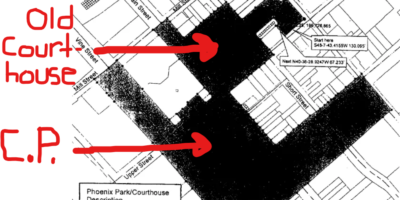By David Swanson
Some smart people thought, and perhaps some still think, that the 2003-2011 war on Iraq was unique in that it was promoted with the use of blatant lies. When I’d researched dozens of other wars and failed to find one that wasn’t based on a foundation of similar lies, I wrote a book about the most common war lie varieties. I called it War Is A Lie.
That book has sold more than any of my others, and I like to think it’s contributed some teeny bit to the remarkable and very welcome skepticism that is greeting the U.S. government’s current claims about Syria. The fact is that, were the White House telling the truth about the need for an attack on Syria, it would be a first in history. Every other case for war has always been dishonest.
The United States sought out war with Mexico, not the reverse. There was never any evidence that Spain sank the Maine. The Philippines didn’t benefit from U.S. occupation. The Lusitania was known to be carrying troops and arms. The Gulf of Tonkin incident never happened. Iraq didn’t take any babies out of incubators. The Taliban was willing to turn bin Laden over to be tried in a neutral court. Libya wasn’t about to kill everyone in Benghazi. Et cetera. Even wars that people like to imagine as justified, such as World War II, were nonetheless packaged in lies; FDR’s tales about the Greer and the Kearney and supposed secret Nazi maps and plans were a step on the steady trajectory from Woodrow Wilson to Karl Rove.
The idea that Syria used chemical weapons is more plausible than the idea that Iraq had vast stockpiles of chemical, biological, and (in some versions) nuclear weapons and was working with al Qaeda. But the evidence offered in the case of Syria is no stronger than that for Iraq. It’s harder to disprove merely because there’s nothing to it: no documentation, no sources, no science. Congress members who have seen the classified version say it’s no better than the declassified. Experts within the government and reporters in Syria who have seen more than that say they don’t believe the White House’s claims. The assertions masquerading as a case come packaged in dishonest claims about how quickly Syria gave access to inspectors, and are written in a manner to suggest far greater knowledge and certainty than they actually assert on careful examination.
War lies
The latest claims follow a series of failed claims over a period of months and stand to benefit a Syrian opposition that has been found repeatedly to be manufacturing false propaganda aimed at bringing the United States into the war. It seems, at this point, unlikely that the Assad government used chemical weapons two weeks ago, and already certain that even if it did, President Obama and Secretary Kerry don’t know it—they’ve only guessed it at best.
The debate over chemical weapons, itself, is framed by the lie that a law against chemical weapons can be enforced by one nation attacking another. In fact, Syria is not a party to the Chemical Weapons Convention. If it were, it would be subject to prosecution in court. In any event, it is subject to the judgment and action of the world and its courts, not of one vigilante representing 4% of the world. The bizarre idea that bombing a country can be a form of law enforcement dishonestly hides the fact that the action itself violates the U.N. Charter and the Kellogg Briand Pact.
Wars, a central lie maintains, are fought against evil. But Assad is not the devil incarnate. He’s a horrendously awful ruler, pushed in bad directions by those around him as much as they by him. He’s someone who has proposed disarmament in the past and been rejected by the United States. He’s someone who has done evil things in cooperation with the United States, including lawless imprisonment and torture. He’s not going to eat American children in their sleep. He’s never threatened the United States, and has shown remarkable restraint in the face of threats by the United States and the CIA’s efforts to undermine and attack his government. Residents of the United States in search of dangers to get excited about shouldn’t arrive at Bashar al Assad until far, far down the list past poor diet, poor healthcare, lack of exercise, automobiles, obesity, industrial pollution, unsafe workplaces, gun accidents, chain saws, lightning strikes, and countless other causes of death.
Wars, a common lie holds, are fought in defense. But Syria is no threat to the United States, and when President Obama suggests that theoretically it could be, the laughter you hear from most listeners is the correct response. The White House hasn’t sought to build much of a case for “defensive war” against Syria, even on the Benghazi model, and that deficiency is a major weakness. Most people have no tolerance for non-defensive wars. Exceptions are sadists and believers in humanitarian bombings, or — to name a category that encompasses both of those groups — imperialists.
The Syrian government is, like any government the United States wants to attack, a brutal government that the United States worked with until recently, situated in a region full of brutal governments the United States still supports. In this case, the brutal governments still armed and supported by the U.S. government include Bahrain, Saudi Arabia, Egypt, Jordan, Israel, and Yemen. If the US. government wanted to reduce violence, it could end its 2001-begun war on Afghanistan, it could end its drone strikes, and it could stop supplying Saudi Arabia with cluster bombs and Egypt with tear gas and Bahrain with ex-police chiefs. Wars are not driven by generosity, despite what you’ll often — and increasingly — hear.
We’ve also been hearing that President Obama has no choice. He’s painted himself into a corner. War simply must happen now, for better or worse. This is nonsense, of course. If Kennedy could back off from a nuclear pissing match with Khrushchev, then surely Obama can accede to the opinion of the United States and the world on the matter of Syria. Had Kennedy prioritized stupid machismo, we wouldn’t admire him more. We wouldn’t do anything at all. We’d all be dead or never born. Wars, despite a common lie, are not inevitable.
Violence doesn’t reduce violence, despite the prevalence of this lie. Wars are not ended by enlarging them. Adding violence to the Syrian civil war will kill directly, escalate the killing by both sides, risk further escalation into a regional conflict, exacerbate a refugee crisis, damage existing aid operations, and make a cease-fire and negotiations more difficult. Killing some Syrians and blowing up some Syrian buildings will leave Assad with exactly whatever “impunity” he had before — particularly if no nations pursue his indictment in any court for any crimes. But those Syrians killed and everyone else impacted indirectly will be worse off, not better.
War winners and losers
As war drags on and expands, the arguments for continuing it will be retaliation against the attacks of other nations, even if our nation provoked them, and the almost religious duty to “support the troops.” But the dirty little secret hidden by that shiny lie is that the troops don’t benefit from adding years to each quagmire. The troops, in fact, suffer — often severely. Wars are not prolonged for the good of soldiers, no matter what your television says. They’re prolonged for politicians and profiteers.
The beneficiaries of a U.S. attack on Syria will be war profiteers, their political servants, media outlets that gain higher ratings, and a gang increasingly dominated by al Qaeda-affiliated groups that is seeking power in Syria through the use of vicious violence that is illegal in its entirety. War makers do not have noble motives.
A U.S. war on Syria, short or long, will not be fought by armies on a battlefield. It will be fought by missiles and planes and drones in and above the neighborhoods where men, women, and children live. The human, societal, and environmental damage will be something that too many parts of the world are familiar with but the United States itself is not.
This war, like others of its sort, will not be won. Syria was not going to be the first case in which a war was based on honesty. It’s also not going to be the first place where a humanitarian war benefits humanity. It’s not going to be the first place where the U.S. military builds a stable democratic nation. It’s not going to be the first nation whose people are grateful for such an intervention. And it’s not going to involve anything that could be properly called a victory.
The deepest lie at the route of this drive for war is perhaps the lie that a nation can prepare for war, dumping its energies and resources into every possible plan for every conceivable war, and yet manage to avoid those wars unless they are forced upon it as a “last resort.” This next dishonest, immoral, illegal, unpopular, murderous, atrocity-laden, uncontrollable, environment-destroying, rights-eroding, money-wasting war will come relentlessly, ineluctably, it will come . . . unless we compel our government to consider other possible courses of action, including that of actively working for peace through a posture of respect for others that would require a bit of truthfulness.
Article originally appeared on Let’s Try Democracy.




Leave a Reply